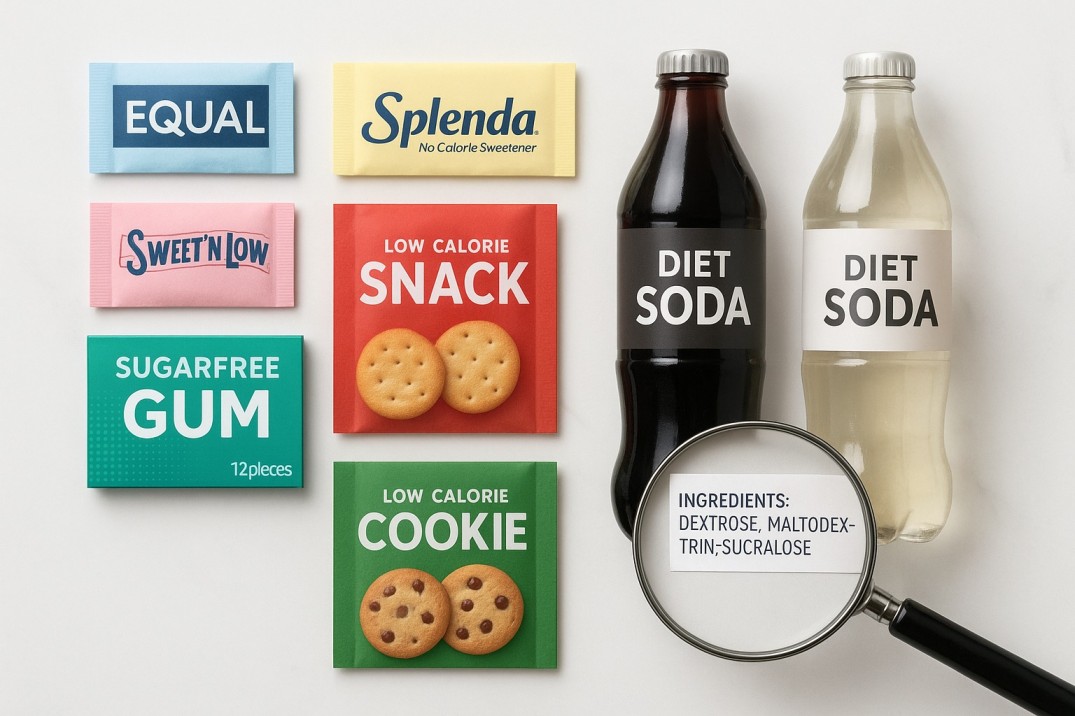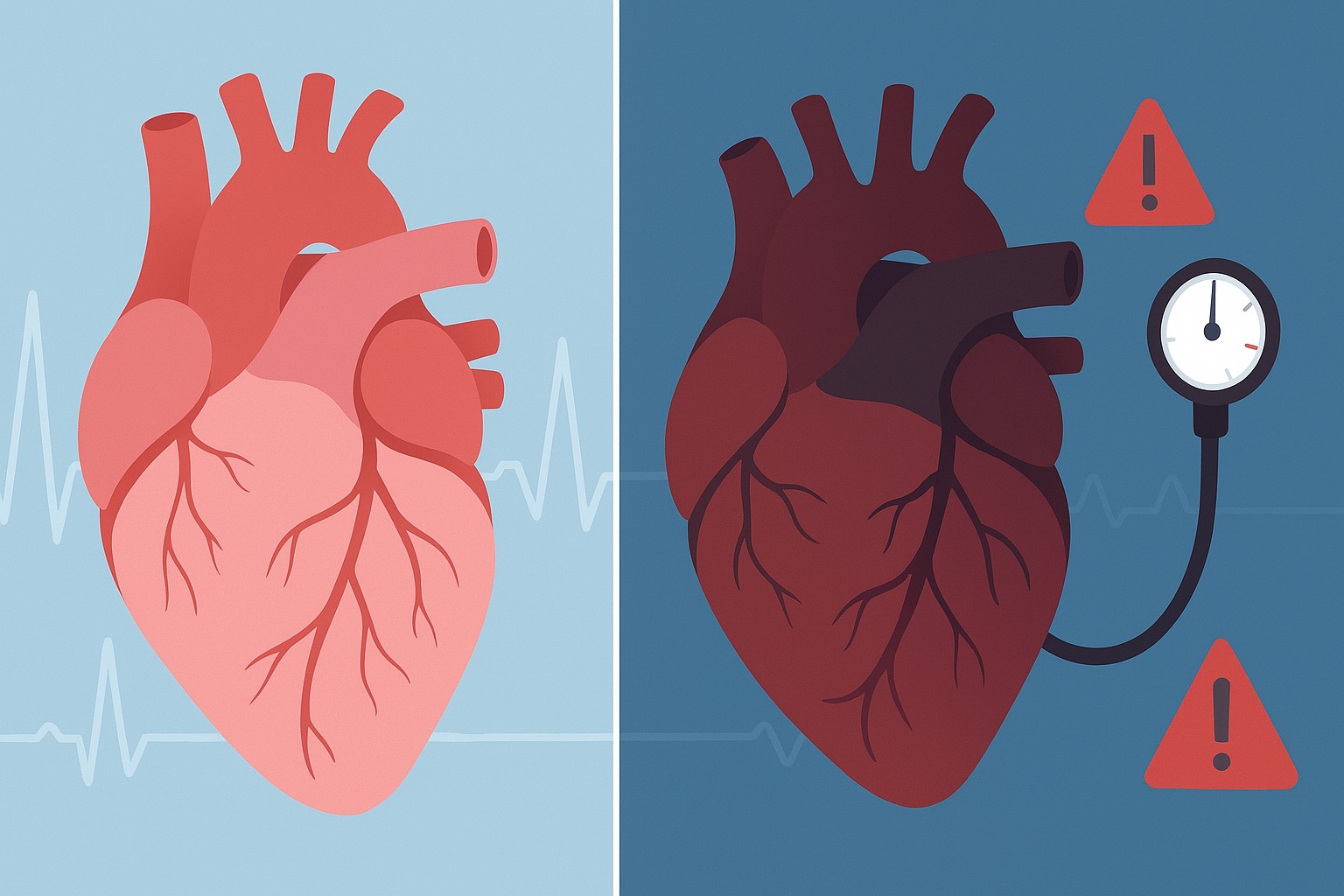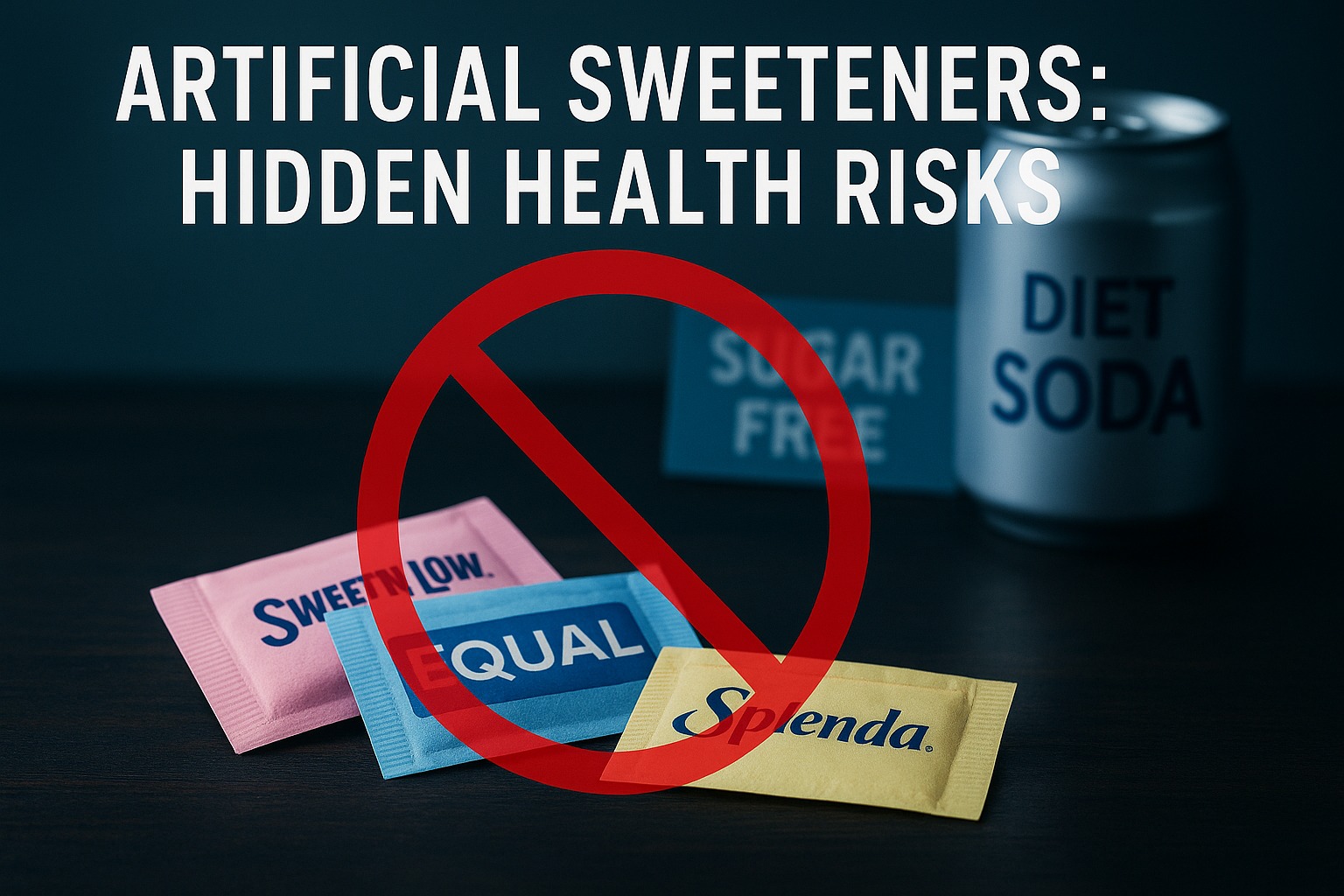Understanding the impact of sugar substitutes on your body
Introduction
Artificial sweeteners have become increasingly popular as people seek to reduce sugar intake and manage their weight. Found in diet sodas, sugar-free snacks, and countless “low-calorie” products, these synthetic sugar substitutes promise sweetness without the calories. However, emerging research suggests that artificial sweeteners may not be the healthy alternative they appear to be.
Common artificial sweeteners include aspartame, sucralose, saccharin, and acesulfame potassium. While marketed as safe and beneficial for weight management, scientific studies have revealed several concerning health effects that deserve your attention.

1. The Weight Gain Paradox
Contrary to popular belief, artificial sweeteners may actually contribute to weight gain rather than weight loss. Research published in the Canadian Medical Association Journal (2017) found that long-term consumption of artificial sweeteners was associated with increased body mass index (BMI) and higher risk of obesity.
How It Happens:
Increased Appetite: Artificial sweeteners can disrupt the body’s natural ability to regulate calorie intake. When you consume something sweet without the expected calories, your brain’s reward pathways become confused, leading to increased cravings and hunger.
Larger Portion Sizes: Studies show that people consuming artificially sweetened products often compensate by eating larger portions of other foods, believing they’ve “saved” calories.
Disrupted Metabolism: Research from Yale University indicates that artificial sweeteners may alter metabolic responses, making it harder for your body to process actual sugar when consumed.
High Carbohydrate Pairing: Many artificially sweetened foods are still high in refined carbohydrates, which can contribute to weight gain regardless of the sweetener used.
2. Diabetes Risk and Blood Sugar Disruption
The connection between artificial sweeteners and diabetes has become increasingly clear through recent research. A landmark study published in Nature (2014) demonstrated that artificial sweeteners can alter gut bacteria in ways that promote glucose intolerance—a precursor to type 2 diabetes.
Key Findings:
- A 2022 study in Cell Metabolism found that sucralose and saccharin significantly impaired glucose tolerance in healthy adults
- The San Antonio Heart Study tracked over 3,000 participants and found that diet soda drinkers had a 67% higher risk of developing type 2 diabetes
- Artificial sweeteners may interfere with insulin signaling, making cells less responsive to this critical hormone
The mechanism appears to involve changes in gut microbiome composition, which plays a crucial role in metabolic health and blood sugar regulation.
3. Cardiovascular Complications
Your heart health may be at risk with regular artificial sweetener consumption. A comprehensive study published in the Journal of the American College of Cardiology (2019) revealed alarming cardiovascular connections.
Cardiovascular Risks Include:
Hypertension: Regular consumption of artificially sweetened beverages has been linked to increased blood pressure. The Northern Manhattan Study found that people drinking diet sodas daily had a 43% higher risk of vascular events.
Heart Disease: Research from the Framingham Heart Study showed that individuals consuming two or more artificially sweetened drinks daily had double the risk of coronary heart disease compared to non-consumers.
Stroke Risk: A 2017 study in the journal Stroke found that diet drink consumption was associated with increased risk of both stroke and dementia.
These effects appear comparable to—or sometimes worse than—the cardiovascular risks associated with sugar-sweetened beverages.

Cardiovascular Complications
4. Metabolic Syndrome: A Dangerous Cluster
Metabolic syndrome is a collection of conditions including elevated blood pressure, high blood sugar, excess abdominal fat, and abnormal cholesterol levels. Together, these factors dramatically increase your risk of heart disease, stroke, and diabetes.
The Research:
A groundbreaking study published in Diabetes Care (2009) tracked over 9,000 participants and found that those consuming artificial sweeteners regularly had a 36% greater risk of developing metabolic syndrome and a 67% increased risk of type 2 diabetes.
Components Affected:
- Waist Circumference: Increased abdominal fat deposition
- Blood Pressure: Elevated systolic and diastolic readings
- Lipid Profiles: Altered HDL and LDL cholesterol levels
- Fasting Glucose: Impaired blood sugar regulation
The risk appears to increase with frequency of consumption, with daily users facing the highest danger.
5. Dulled Taste Perception
Artificial sweeteners are 200 to 600 times sweeter than regular sugar. This extreme sweetness can fundamentally alter how your taste buds perceive and respond to natural sweetness.
Long-Term Consequences:
Desensitization: Your taste receptors become accustomed to intense sweetness, making naturally sweet foods like fruits seem bland or unsatisfying.
Increased Cravings: As natural foods lose their appeal, you may find yourself seeking increasingly sweeter and more processed foods to satisfy cravings.
Nutritional Impact: This can lead to reduced consumption of nutritious whole foods like fruits and vegetables, potentially causing nutritional deficiencies.
A study in Appetite (2016) found that regular artificial sweetener users rated fruit as significantly less sweet and less pleasant than non-users, potentially contributing to poor dietary choices.
6. Additional Health Concerns
Gut Microbiome Disruption
Recent research has revealed that artificial sweeteners can significantly alter gut bacteria composition. A 2022 study in Cell found that commonly used sweeteners like saccharin, sucralose, and aspartame all changed gut microbiome profiles in ways that could negatively impact health.
Potential Neurological Effects
Some studies suggest links between certain artificial sweeteners (particularly aspartame) and headaches, migraines, and mood changes, though more research is needed.
Pregnancy Concerns
A 2016 study in JAMA Pediatrics found that maternal consumption of artificially sweetened beverages during pregnancy was associated with increased infant BMI and risk of childhood overweight.
Better Alternatives: Natural Sweeteners
If you’re looking for healthier ways to satisfy your sweet tooth, consider these natural alternatives:
Honey
- Contains antioxidants and beneficial enzymes
- Has antimicrobial properties
- Provides small amounts of vitamins and minerals
- Use in moderation due to calorie content
Stevia
- Derived from the stevia plant
- Zero calories and doesn’t spike blood sugar
- Some studies suggest potential benefits for blood pressure
- Choose pure stevia without additives
Monk Fruit
- Natural, zero-calorie sweetener
- Contains antioxidants called mogrosides
- Doesn’t affect blood sugar levels
- No known negative side effects
Dates
- Whole food source of sweetness
- High in fiber, potassium, and magnesium
- Can be blended into smoothies or used in baking
- Provides sustained energy
Maple Syrup
- Contains minerals like manganese and zinc
- Has antioxidant properties
- Less processed than refined sugar
- Use pure, grade A maple syrup
The Bottom Line
While artificial sweeteners were developed to help people reduce sugar intake and manage weight, the scientific evidence suggests they may cause more harm than good. From weight gain and diabetes risk to cardiovascular complications and metabolic syndrome, the potential health consequences are significant and well-documented.
Recommendations:
- Read Labels Carefully: Check ingredient lists for artificial sweeteners in processed foods
- Reduce Overall Sweetness: Gradually decrease your preference for sweet tastes
- Choose Whole Foods: Opt for naturally occurring sugars in fruits and vegetables
- Use Natural Alternatives: When sweeteners are needed, select natural options like honey or stevia in moderation
- Stay Hydrated: Replace diet sodas with water, herbal tea, or infused water
The healthiest approach is to reduce your overall dependence on sweetness—whether artificial or natural—and retrain your palate to appreciate the natural flavors of whole, unprocessed foods.
References
- Azad, M. B., et al. (2017). Nonnutritive sweeteners and cardiometabolic health. Canadian Medical Association Journal.
- Suez, J., et al. (2014). Artificial sweeteners induce glucose intolerance by altering gut microbiota. Nature.
- Vyas, A., et al. (2015). Diet drink consumption and the risk of cardiovascular events. Journal of General Internal Medicine.
- Nettleton, J. A., et al. (2009). Diet soda intake and risk of incident metabolic syndrome. Diabetes Care.
- Suez, J., et al. (2022). Personalized microbiome-driven effects of non-nutritive sweeteners on human glucose tolerance. Cell.
Disclaimer: This article is for informational purposes only and does not constitute medical advice. Always consult with a healthcare professional before making significant dietary changes.


